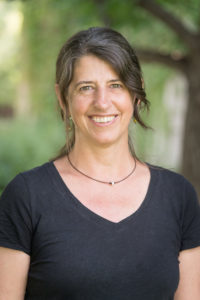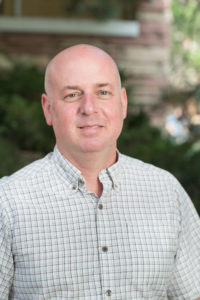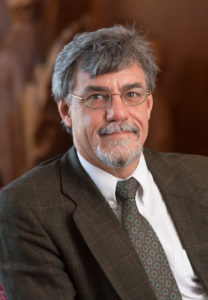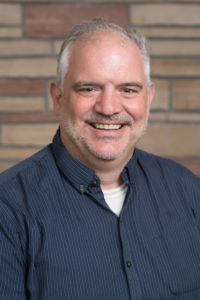
Some may assume that dealing with the “wicked problems” of our age, like climate change or world hunger, only requires technical solutions from hard sciences like engineering. We simply need to invent the next generation of low-emission vehicles and sustainable, high-yield crop strains, right?
But there is growing recognition that persistent social challenges like these are intrinsically tied to human emotions and behavior, and can be effectively addressed only by incorporating the fields of study that make up the liberal arts into the discussion. In addition to inventing technical solutions, a comprehensive approach to wicked problems requires careful consideration of human routines, beliefs and actions.
For example, scientists can invent an outdoor solar oven for African villages where cooking has traditionally been done indoors, leading to smoke pollution and health problems. But because of the intense heat of the day, the villagers are accustomed to cooking before sunrise or after sunset, when there’s no sun to power those new stoves.
The College of Liberal Arts
That’s where the contributions of the liberal arts become key. Through programs and faculty expertise in the social sciences, humanities and visual and performing arts, the College of Liberal Arts contributes to Colorado State University’s national reputation in areas of energy, water, environment and food systems. In addition, the college has award-winning faculty who advance the University’s reputation in its specific disciplines, whether it’s economics, philosophy, anthropology or English, where the college has two Guggenheim Fellows in poetry.
Department of Political Science Chair Michele Betsill, one of the 40 most-cited women scholars at Ph.D.-granting political science departments, points to global warming as an example.

“Even if we all agreed on the science of climate change, we would still fight like hell about it, because of things like geographic location and how to pay for addressing it,” she says. “Many say climate change is too politicized, but I say we actually need more politics, because that brings in additional sets of values.”
For instance, Betsill says, India may be a major contributor to greenhouse gases, but on average its population is much poorer than that of the United States. So should the average Indian pay the same as a U.S. citizen to address climate change? How much responsibility should be borne by individuals versus corporations?
Resistance to change
In an example of how human behavior plays a key role in wicked problems, Betsill points to the fact that many people still use hot water when washing the whites in their laundry, even though technological advances in detergents and washing machines now allow for all clothing to be cleaned effectively in cold water.
“People don’t like to do things differently,” she says. “We feel comfortable in the way we’ve lived for years. Some say we need to change what we view as normal. It’s one thing to be aware of a problem, and quite another to alter your routines.”
Another example of a wicked problem is public transportation, Betsill explains. Everyone wants a bus stop within a quarter-mile of their house, or they won’t take the bus. And yet the cost of creating such a convenient bus route for all would be cost-prohibitive. We shame people for driving their cars, she adds, yet some people simply don’t have access to a bus line that takes them where they need to go.
“The hard sciences say climate change is caused by driving too much,” Betsill says. “But in the liberal arts, we ask, ‘Why are we driving too much?’”
“We in America have long seen technology as a way to solve our problems,” adds Ben Withers, dean of the College of Liberal Arts. “But we’re realizing more and more that a gadget or piece of technology is not enough. We need to understand how people use the technology. That’s what we do in the College of Liberal Arts.”
Wicked bioethics problems
Moti Gorin, an assistant professor of philosophy, is an expert in bioethics, grappling with issues like when to use emerging gene editing capabilities. It’s a wicked problem if there ever was one, and it’s a classic example of a situation where the technology is there — or soon will be — and questions include how, when and whether to employ it.
Why wicked?
The term “wicked problems” has been used for decades to describe dilemmas that don’t have the straightforward solutions of, say, a math problem. Horst Rittel and Melvin Webber are credited with applying the term to social policy and community planning in June 1973.
“The kinds of problems that planners deal with — societal problems — are inherently different from the problems that scientists and perhaps some classes of engineers deal with,” they wrote in Policy Sciences. “Planning problems are inherently wicked. As distinguished from problems in the natural sciences, which are definable and separable and may have solutions that are findable, the problems of governmental planning — and especially those of social or policy planning — are ill-defined; and they rely upon elusive political judgment for resolution.
“The problems that scientists and engineers have usually focused upon are mostly ‘tame’ or ‘benign’ ones,” Rittel and Webber continued. “As an example, consider a problem of mathematics, such as solving an equation; or the task of an organic chemist in analyzing the structure of some unknown compound; or that of the chess player attempting to accomplish checkmate in five moves. For each the mission is clear. It is clear, in turn, whether or not the problems have been solved. Wicked problems, in contrast, have neither of these clarifying traits; and they include nearly all public policy issues — whether the question concerns the location of a freeway, the adjustment of a tax rate, the modification of school curricula, or the confrontation of crime.
“In the sciences and in fields like mathematics, chess, puzzle-solving or mechanical engineering design, the problem-solver can try various runs without penalty,” they write. “Whatever his outcome on these individual experimental runs, it doesn’t matter much to the subject-system or to the course of societal affairs. A lost chess game is seldom consequential for other chess games or for non-chess-players. With wicked planning problems, however, every implemented solution is consequential. It leaves ‘traces’ that cannot be undone. One cannot build a freeway to see how it works, and then easily correct it after unsatisfactory performance.”

Most would disagree with the Nazi approach of trying to create a perfect race by eliminating undesirable types of people. But Gorin raises more difficult dilemmas on the horizon. What if you were pregnant and you found out that your baby had an IQ of only 60, and you could bring it up to a normal range through gene editing? What if you could raise it from 110 to 130?
“We’ve always been able to choose a certain mate, to have at least some control over the kind of baby we have,” Gorin says. “Now we’ll have the capability to do it in a much more exact and targeted way.”
What if a pregnant woman found out that her baby had Down syndrome, and gene editing technology could reverse it? What if an expectant mom could change a disability? According to Gorin, some ethicists and members of the disability rights community claim the message that move would send to people with disabilities is: “The world would be a better place without people like you.”
Lasting changes
Complicating this ethical dilemma is differentiating between one-time genetic edits and germ-line editing, which refers to genetic changes that can be inherited, or passed down to future generations.
“Humans up to this point in history are markedly different from pens or bottles that we manufacture,” Gorin says. “Some say we’re a gift from God, or at least a mystery. But if you start selecting for eye color, intelligence, height, psychological dispositions, and so on, we may become more like products, like automobiles. You lose a bit of that sacredness, or whatever the secular equivalent of sacredness is.”
And will only the rich be able to afford to make such decisions?
“Now we’re talking about using our money to buy designer babies,” Gorin explains. “You could imagine kids resenting their parents for what they got or didn’t get: ‘Why didn’t you make me taller?’ ‘We didn’t have the money.’ ‘You could’ve taken out a loan.’”

Withers argues that the liberal arts should have a seat at the table from the start.
“We need to have social scientists and humanists there at the very beginning of the conversation, to make sure the questions we ask at the outset are the right ones,” he says. “If we bring in the social scientists and humanists at the end, it’s too late.”
The political divide
Martín Carcasson, the communication studies professor who founded and directs CSU’s award-winning Center for Public Deliberation, is very familiar with wicked problems. He’s written entire journal articles and book chapters about them.
Carcasson and the CPD specialize in getting groups of people, especially those who disagree, at the same table to engage in constructive dialogue that reaches sound decisions and solutions instead of fueling divisiveness, especially at the local level.
When it comes to politics, or any issue where there is sharp disagreement between two or more groups, Carcasson says science and technology can actually be harmful to reaching any mutual understanding because of the tendency to polarize.
“The internet serves as an accelerant because it is an extremely efficient vehicle to feed our biases and spread simplistic examples and conspiracy theories among uncritical, like-minded groups,” he writes in “From Crisis to Opportunity: Rethinking the Civic Role of Universities in the Face of Wicked Problems, Hyper-Partisanship, and Truth Decay,” a chapter in Democracy, Civic Engagement and Citizenship in Higher Education, published last year.
A local example
Carcasson points to a local disagreement as a prime example of a wicked problem: the proposed Glade Reservoir north of Fort Collins, which some hail as an important source of water for growing populations along the Front Range — and others criticize as an unnecessary ecological threat to the Poudre River basin.
“Everyone cares about things like the environment, the economy, open space and farming,” Carcasson says. “All of those things are good. The problem is, we want lots of things, and they don’t always fit together very well.”
He notes that persuaders and pundits like to narrow the scope and only focus on the specific values that support their perspective, while deliberation helps people see all the underlying values as well as the inherent tensions between them.
“If I’m selling you an SUV,” Carcasson says, “I want you to think about safety and storage, not gas mileage.”

Getting to collaboration
His challenge is to get people to acknowledge others’ opinions as valid stances to consider.
“A big part of our work at the CPD is getting people to shift from an adversarial mode to a collaborative one,” Carcasson explains. “If you’re adversarial, you tend to think that the people are wicked, not the problems. When you’re collaborative, you are more open to the facts. You can still keep your mindset, but you need to identify others’ views and find compromise.”
Democracy itself is a wicked problem, he says, pointing to the values outlined in the preamble to the U.S. Constitution, which include justice, tranquility, defense, welfare and liberty.
“Freedom and security don’t always go together very well,” Carcasson says. “The conversation we need to have is how to deal with these natural tensions. And the two-party political system is almost designed to pit people against each other. Our brains hate tension. Our brains want good versus evil. My work is about reframing conversations so we avoid these simple pitfalls and can actually make decisions together.”
And that issue may be one of the most wicked of all.
The role of universities
In the chapter he wrote for Democracy, Civic Engagement and Citizenship in Higher Education, Carcasson argues that universities have an opportunity to become key players in addressing today’s wicked problems.
“First, a wicked problems-focused institution would inherently push back on the traditional criticism of the university as an elitist Ivory Tower, detached from their community, and hopelessly and unintelligible in disciplinary siloes,” Carcasson wrote. “… Secondly, a wicked problems-focused institution would push back against the criticism of a corporate capture of our institutions that have turned them into glorified market-driven job training centers and research arms for the business world. They could focus more on civic education while at the same time providing students useful skills clearly coveted by employers.”
He continued, “Lastly, and perhaps most importantly, a wicked problems-focused institution would push back on the polarizing criticism of progressive capture by so-called social justice warriors. There will certainly be a place for activism, protest and calls for social change. But if framed under the umbrella of tackling wicked problems, the efforts would likely work to bring people together to address the issues, rather than further dividing them into the separate competing narratives we have now that are undermining any reform efforts.”
“Our wickedest problem seems to be our polarized society,” Withers concludes. “How can we get people together to deliberate instead of fight?”
In the coming months, articles about the College of Liberal Arts will explore specific wicked problems within the realms of racism and exclusion; democratic institutions and civic engagement; environment and sustainability, and globalization and global perspective.